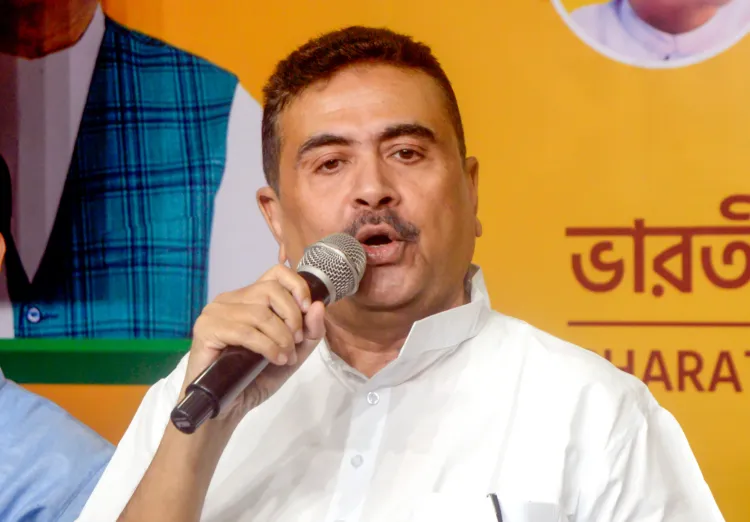Does the Mamata-led Bengal government have an 'anti-Gujarat mindset'?

Synopsis
Key Takeaways
- Accusations of bias: Adhikari's claims highlight concerns over regional favoritism in government contracts.
- Political tensions: The situation underscores the ongoing rivalry within West Bengal's political landscape.
- Importance of transparency: The need for fair tender processes is crucial for public trust in governance.
- Potential electoral impact: These allegations may influence voter sentiment in upcoming elections.
- Focus on governance: The discussion emphasizes the importance of merit-based selections in government positions.
Kolkata, June 19 (NationPress) The Leader of the Opposition in the West Bengal Assembly, Suvendu Adhikari, has accused the Mamata Banerjee-led West Bengal government of possessing an 'anti-Gujarati mindset'. This accusation came after several cabinet members raised concerns that the office of the Chief Electoral Officer (CEO), West Bengal, awarded a tender for election-related work to a Gujarat-based firm, sidelining local entities that also participated in the bidding process.
During an assembly session on Wednesday, the state municipal affairs and urban development minister, along with Kolkata Municipal Corporation (KMC) Mayor Firhad Hakim, claimed that the CEO's office had recently announced a tender for election-related tasks concerning the Kaliganj assembly constituency bypolls, which were held on Thursday.
Hakim specifically alleged that the tender for webcasting services was awarded to a firm based in Ahmedabad, dismissing bids from local West Bengal entities.
He further asserted that this decision deprived West Bengal's entities of a fair opportunity.
Later that day, Chandrima Bhattacharya, the West Bengal Minister of State for Finance, echoed these accusations during a media interaction.
Although the CEO's office has not responded to these claims, Adhikari voiced his concerns, stating that the selection of an agency from Ahmedabad suggests a regional bias against Gujarati firms, which are entitled to participate in any tender process, as Gujarat remains an integral part of India.
He emphasized that the chosen Gujarat-based entity likely met all necessary criteria, and its selection was being unfairly criticized due to the Trinamool Congress's political rivalry with those they label as 'outsiders' when convenient.
Adhikari also criticized the Trinamool Congress government, known for handpicking individuals for significant positions like Chief Secretary and state Director General of Police, often ignoring seniority.
He highlighted that current Chief Secretary Manoj Pant was selected despite two senior Indian Administrative Service (IAS) officers' claims, and similarly, Director General of Police Rajeev Kumar was chosen over a more senior Indian Police Service (IPS) officer.










